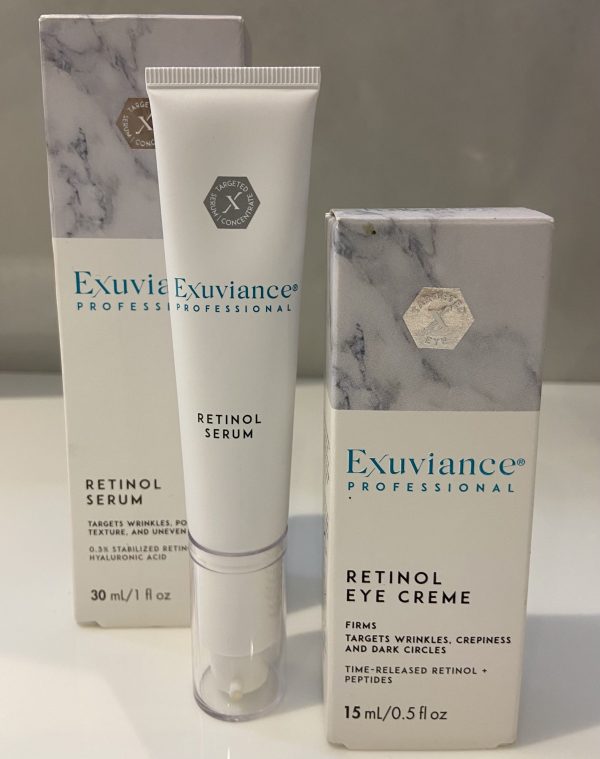Is Retinol good for your skin?
Retintol is one of those ingredients which most people have heard about, but they don’t really understand. It leaves most people asking – is Retinol good for your skin?
As a skin clinic owner I’ve used and tested a huge range of products, both to use at home and to use professionally in treatments such as skin peels. I’m going to help explain what Retinol is and what’s it’s good for.
What is Retinol?
Retinol comes from Vitamin A and is used in a huge range of skincare products. Many people class it as an exfoliating ingredient as it can make the skin peel, but actually it’s an antioxidant. For it to work on your skin it has to go through a conversion process. Firstly it converts to retinaldehyde and then to retinoic acid.
So when you purchase a cream which contains Retinol – that has to be converted to retinoic acid in the skin for it to really do anything. The strength of the Retinol in the bottle isn’t really the important factor – it’s the strength of the converted retinoic acid which matters most.
How is Retinol good for your skin?
If you use a good quality retinol (which is converted into stable retinoic acid) it will have many benefits on the skin. That is if you use it regularly and for more than just a week!
- Retinol speeds up the activity of the skin – which we call the cell turnover. So the whole process of skin shedding and new skin pushing up from below is speeded up.
- This process increases collagen production in your skin, which makes it firmer and reduces fine lines. It also slows down the break down of your existing collagen.
- It’s good for acne, and in this case is often used in the more potent form Retin-A. Since it causes the skin to shed, it releases clogged pores, and prevents new spots.
- Retinol also has an effect on reducing irregularities in the skin such as pigmentation and dark spots, so it has an overall clearing benefit.
How should you use Retinol?
You need to use it consistently for a prolonged period of time to see real benefits. At least 2-3 months. However depending on the potency, you’ll probably want to start off gently. Try using it once every two to three days to start with so that your skin can build up tolerance, and then increase it.
While this super powerful ingredient has many benefits it can also cause dryness, peeling and irritation. This is why you need to build up to using it daily. You should counteract the dryness with serums or creams which are very hydrating and moisturising.
You should use Retinol at night. This is because it makes your skin more sensitive to sunlight and also UV rays can make it less effective by breaking it down more quickly. You still need to use SPF in the day if you’re using Retinol at night.
There’s also the option of Retinol skin peels in a clinic. These will be more potent than most skincare products and can supplement your retinol usage at home.
When to stop using Retinol
Don’t use retinol if you have a really sensitive skin condition such as Rosacea or Eczema. If you have mild rosacea you may be able to try retinol once a week in a less potent formula, but if that irritates you, then there are other skincare ingredients you can use instead.
You should also take a break from Retinol if you’re having certain beauty or skin treatments. Stop using it for at least 5 days before and after any of the following:
- Laser treatment / IPL treatment
- Skin Peel
- Microdermabrasion
- Regular Facial
- Dermaplaning
- Waxing
If you’re going to be in intense sunlight on holiday you might be better to take a break too. Your skin will be more sensitive and more prone to burning. If you want to continue then you need to be very very thorough about applying a high SPF regularly.
So in answer to the question – is Retinol good for the skin – it’s a resounding yes for most people! You can add this ingredient at any time, and can happily start in your late 20s and early 30s. If you’re much older than that, don’t worry, start right away!
_________________________________________________
For more information on skin peels. Then click here.


